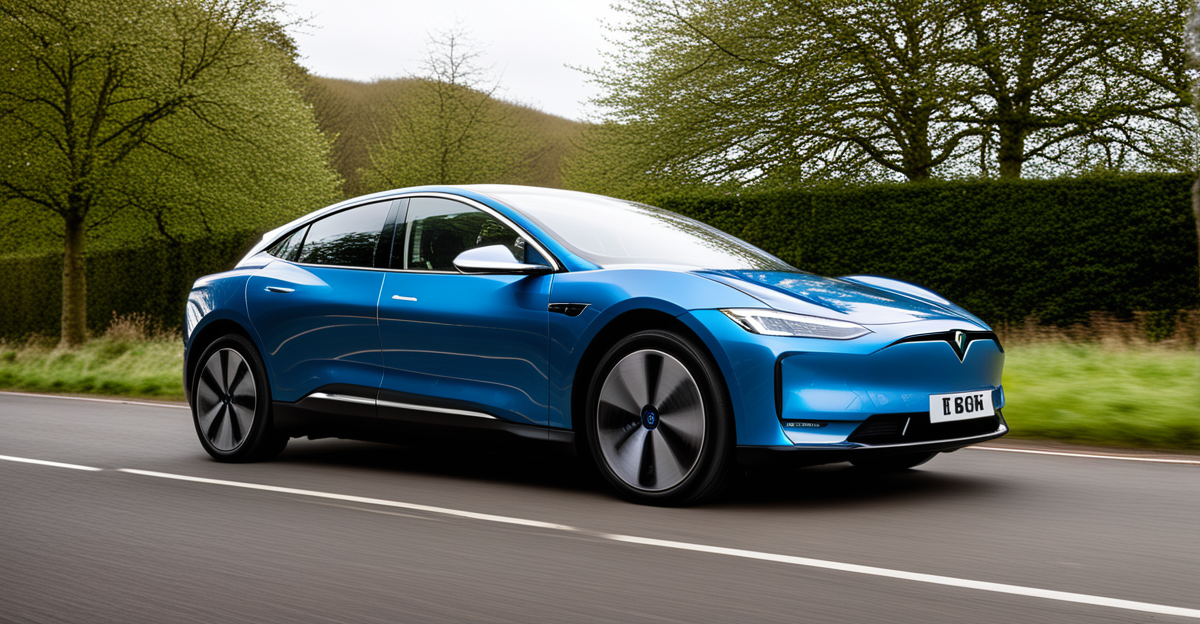Breakthrough Battery Technologies Shaping UK Electric Vehicles
Innovations in battery technology UK are transforming the future of electric vehicles by enhancing both energy density and durability. One key advancement is the development of solid-state batteries, which promise significant EV range improvements due to their higher energy storage capacity and increased safety compared to traditional lithium-ion batteries. These advanced EV batteries utilize revolutionary materials to extend lifespan and reduce charging times, directly addressing common concerns about EV usability.
The UK is at the forefront of this progress, with numerous research institutions and manufacturers driving breakthroughs. UK-led research focuses not only on creating more efficient batteries but also on sustainable practices such as battery recycling and second-life initiatives. These approaches ensure batteries are repurposed after their initial use, minimizing environmental impact and supporting a circular economy in the EV sector.
Also to see : How Will AI Transform the Future of Automobiles in the UK?
With continued investment in advanced EV batteries and sustainability measures, UK innovations are setting new standards in performance and eco-friendliness. The integration of these technologies paves the way for vehicles that can travel further on a single charge, endure more charge cycles, and reduce reliance on raw materials, underpinning the UK’s commitment to a greener automotive future.
Expansion and Modernisation of the UK Charging Infrastructure
The rapid growth of EV charging stations UK is crucial to supporting the widespread adoption of electric vehicles. With increasing numbers of electric cars on the road, the demand for reliable public charging networks has surged. The UK is actively expanding its public charging network, focusing on rapid charging and ultra-fast charging solutions that significantly reduce charging times, enabling greater convenience for EV users.
Additional reading : How Can Innovations in the UK Automotive Industry Shape the Future?
Innovations extend beyond public spaces. Home charging solutions tailored for urban and suburban environments allow vehicle owners to charge overnight, integrating smart technologies to optimise energy use. On-street charging points are also being introduced in residential areas without off-street parking, making EV ownership accessible to more people.
Effective partnerships between local authorities, utilities, and the private sector are driving this infrastructure expansion. These collaborations ensure that EV charging stations UK are strategically located and technologically advanced to meet both current needs and future demand. This concerted effort enhances EV usability, lessens range anxiety, and supports the UK’s broader commitment to clean transportation.
Government Policy, Incentives, and Regulatory Developments
UK EV policy plays a pivotal role in accelerating electric vehicle adoption. Current government grants for EVs offer financial backing to consumers, making the transition more affordable. For example, grants on battery electric vehicles reduce upfront costs, directly impacting buyer decisions. These incentives complement emission regulation targets aimed at phasing out internal combustion engines, reinforcing the UK’s climate commitments.
Regulatory measures also shape infrastructure growth. Low-emission zones in major cities restrict high-polluting vehicles, incentivising EV use and supporting the expansion of public charging networks. This policy framework encourages industry investment, attracting manufacturers and infrastructure providers eager to meet new demand.
How do these policies influence consumer uptake? By reducing initial costs through EV tax incentives and ensuring accessible charging options, adoption barriers lower significantly. Additionally, clarity in government strategy builds consumer confidence and stabilises market growth.
In sum, balanced policy, grants, and regulation drive systemic change across the EV ecosystem. They underpin the expansion of charging infrastructure and stimulate continuous innovation in advanced EV technologies, aligning industry progress with the UK’s environmental goals.
Breakthrough Battery Technologies Shaping UK Electric Vehicles
Advances in battery technology UK are driving unmatched improvements in electric vehicle performance. At the forefront are solid-state batteries, which replace traditional liquid electrolytes with solid materials, significantly boosting energy density. This breakthrough allows for extended EV range improvements, enabling vehicles to travel farther on a single charge. Additionally, solid-state designs enhance safety by reducing risks of leaks or fires common in conventional lithium-ion batteries.
UK research institutions and manufacturers actively develop advanced EV batteries employing novel materials such as lithium-metal anodes and ceramic electrolytes. These materials increase battery lifespan, allowing more charge cycles before performance degrades. By extending longevity, these advanced batteries reduce the total cost of ownership and waste.
Sustainability is integral to UK battery innovation. Research into battery recycling ensures valuable elements like lithium and cobalt are recovered efficiently, reducing environmental impact and raw material dependence. Moreover, second-life initiatives repurpose used EV batteries for stationary energy storage, contributing to a circular economy. Overall, these technologies underscore the UK’s commitment to delivering high-performance, durable, and eco-friendly solutions in the EV market.
Breakthrough Battery Technologies Shaping UK Electric Vehicles
Solid-state batteries represent a major leap in battery technology UK, delivering substantial EV range improvements through enhanced energy density and safety. These batteries replace liquid electrolytes with solid materials, reducing risks like leakage and combustion, which are common in conventional lithium-ion cells. UK research focuses on utilising innovative materials such as lithium-metal anodes and ceramic electrolytes to boost both energy storage capacity and battery lifespan.
The impact of UK-led innovation is evident in the development of advanced EV batteries that not only extend range but also increase cycle life, meaning vehicles can endure more charge-discharge periods before performance declines. This advancement lowers long-term costs and environmental waste.
Sustainability is also central to UK battery progress. By integrating battery recycling techniques, the recovery of critical elements like lithium and cobalt is maximised, mitigating raw material demand and environmental harm. Additionally, second-life initiatives repurpose used EV batteries for stationary energy storage, further contributing to a circular economy. Together, these advancements position UK innovations at the forefront of creating durable, eco-friendly, and high-performance batteries shaping the electric vehicle market.
Breakthrough Battery Technologies Shaping UK Electric Vehicles
The rise of solid-state batteries marks a pivotal development in battery technology UK, significantly enhancing EV range improvements by boosting energy density. These batteries replace traditional liquid electrolytes with solid materials, increasing safety and durability. UK manufacturers and researchers are pioneering novel components like lithium-metal anodes and ceramic electrolytes, which extend both capacity and lifespan. This means vehicles can travel further and withstand more charge cycles before replacement is needed.
How does this impact the EV market? Advanced EV batteries developed in the UK reduce total cost of ownership and improve reliability, directly addressing consumer concerns about battery longevity and safety.
Moreover, UK-led innovations extend beyond performance. Integration of battery recycling methods effectively recovers critical materials such as lithium and cobalt, reducing environmental strain and dependency on raw resources. Coupled with second-life initiatives, where used batteries serve in stationary storage applications, these efforts support a circular economy.
Collectively, these breakthroughs in battery technology UK demonstrate a comprehensive approach—combining cutting-edge science with sustainability—to power the next generation of electric vehicles with improved range, safety, and eco-friendliness.






